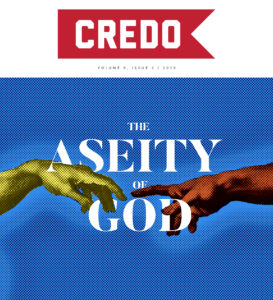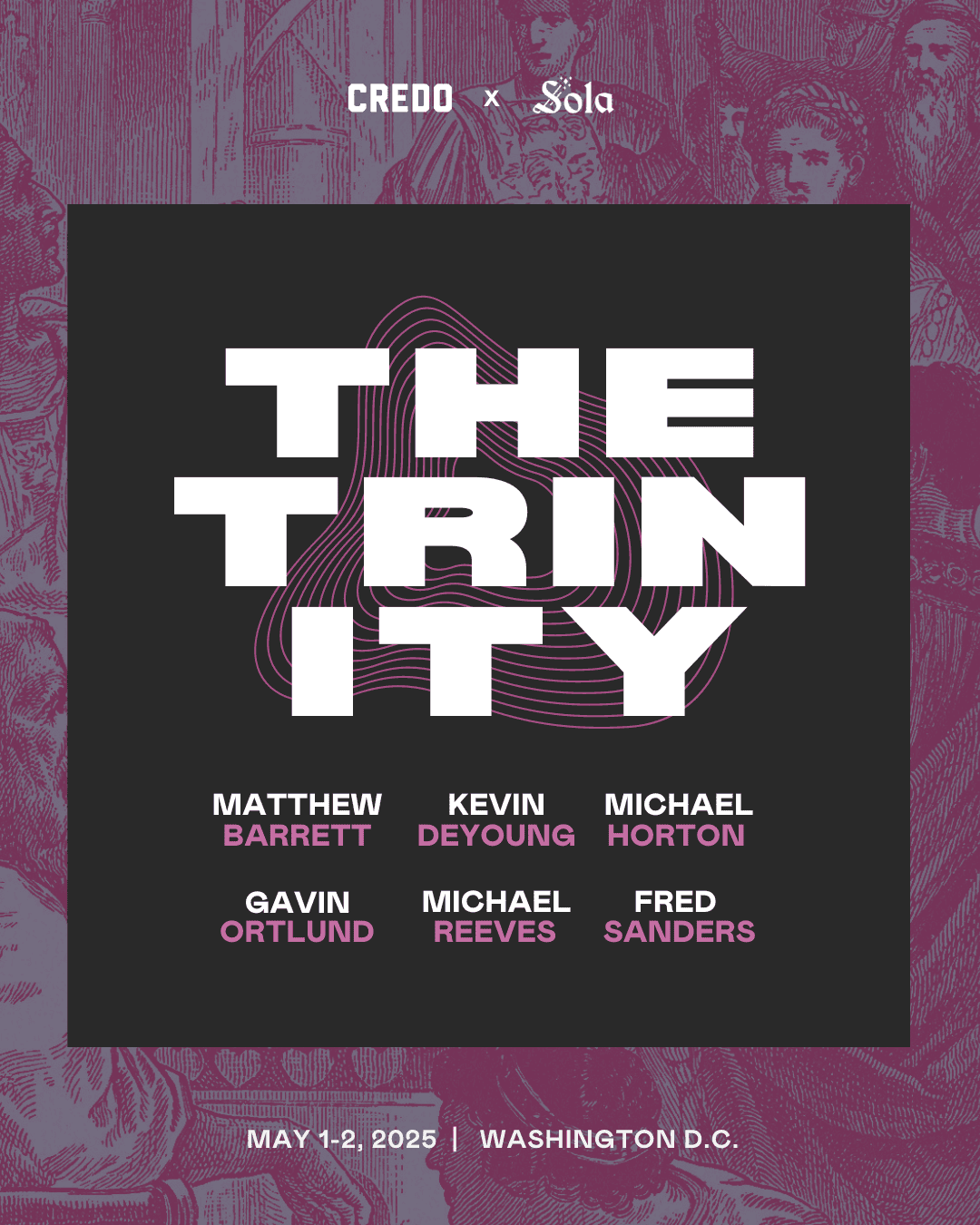In this interview, Jonathan Leeman, editorial director of 9Marks, gets right to the point, telling us about the serious consequences that follow should we neglect ecclesiology and church discipline. But he also warms our hearts by giving us insight into parenting, preaching, and his favorite hymns.
Jonathan, you’ve devoted much of your life to helping Christians understand the importance of the local church. Why all the hub-bub about Ecclesiology? Is it really that important?
If you’re a Christian, you care about the gospel. And if you care about the gospel, you care about the church for at least two reasons. One, the gospel creates the church. When God reconciles us to him, he reconciles us to everyone else united to him (Eph. 2:11-22; 1 Pet. 2:10). Mom and dad adopt you from the orphanage. They take you home, and what do you find? A house full of brothers and sisters.
Two, the church protects and displays the gospel. Think of the church as the gold band which holds the diamond of the gospel in place, protecting and displaying it. When Christians try to “do Christianity” outside the church, it never lasts. Give it a generation, or a decade, or even a few years. It washes away.
In short, we don’t join churches just because it’s good for us. We join because that’s what we are: members of God’s household and Christ’s body. Don’t tell me you love God if you hate, ignore, resist, avoid the family (1 Jn. 4:20).
Most pastors won’t touch the subject of church discipline with a ten-foot pole. But you have! Why?
The old Baptist theologian J. L. Dagg said, “When church discipline leaves a church, Christ soon goes with it.” Why? When you don’t practice discipline, you slowly undermine all your preaching, discipling, and evangelizing. You effectively say, “We don’t really mean what we say about ‘you must be born again’ or ‘repent and believe’ or ‘be salt and light’ or ‘Jesus is Lord.’” You’ve substituted in a thin, anemic, powerless gospel for the real thing that leaves the church looking just like the world. You undermine the power of the church’s witness.
What would you say about a math teacher who teaches the lesson, but never corrects errors in the students’ assignments, or a doctor who prescribes a health regiment but doesn’t cut out the cancer?
If you love Christ and his bride, you’ll practice church discipline. It shows love for the Christian blinded by sin, that he might come to repentance; love for the weaker sheep in the church, lest a little bit of yeast work through the whole batch of dough; love for non-Christian neighbors, lest they be misled about Christianity; love for Christ, that we might reflect him rightly.
You’ve written a lot lately on faith and politics, and you even live in the Washington D.C. area. What are some initial first steps on how Christians should rethink faith and politics?
First, recognize that the public square is nothing more or less than a battleground of gods. You enter the square with a vision of justice, and behind that vision is a worldview, a religion, a god or God. That’s true whether we’re talking about abortion, same-sex marriage, health care policy, or federal funding for national parks. Christians and non-Christians alike say, “Don’t bring your religion into politics.” It’s impossible not to. Everyone does. It cannot be helped.
Second, recognize that the church is political. To say “Jesus is Lord and Judge; you must bow before him” is to make profoundly political statement. It changes everything. It makes a claim on all humanity—kings and generals, slaves and free. Non-Christians are right to feel politically threatened by Christians. They’re being rational when they persecute us, because our king makes demands on them. No, the saints don’t organize to overthrow the state or the marketplace. But, yes, we do mean to preach against the idols which prop up every state and marketplace. We’re like termites who will eat away at those foundations. Just ask Demetrius, who complained that Paul’s preaching was bringing his idol sales for the goddess Artemus into disrepute. It began a riot! Recognize that the public square is nothing more or less than a battleground of gods. Share on X
Third, learn more carefully the authority God has given separately to state and church. One has the sword, one has the keys, and they are separate and distinct authorities. Neither is to wield the other.
Fourth, prize Christian freedom from Romans 14 inside the church. A few issues are clear from Scripture. Most are fuzzy. We will better maintain the unity of the Spirit in the bond of peace when we recognize that Christians will come to different conclusions on these fuzzy issues, and we respect one another’s consciences, forbearing with one another.
Fifth, preach the Bible if you’re a preacher, not your political opinions.
When visiting the D. C. area, what are the top three restaurants you’d recommend?
Three restaurants that my wife and I have returned to several times each, all on Capitol Hill, are Medium Rare (they only serve steak and fries), Acqua Al 2 (Italian), and Montmartre (French).
Let’s talk preaching. Should pastors plan their preaching schedule in advance? If so, how far in advance?
Must they? No. Is it ordinarily wise? I think so. It allows you to work your way deliberately and strategically through different parts of the Bible. If you’re just responding to how you feel this week, you’re never going to choose to preach through Ezra or Jude or even Deuteronomy. It’s sort of like personal devotions. When I have a structure and a plan, they’re much better. When I don’t, they tend to be shallow and breezy.
More crucially, having a preaching plan allows a congregation to see where you’re going. And if you publish a 3 or 4 month preaching card (bookmark sized they can put in their Bibles!), they can read the passage in the personal devotions and family worship in preparation for Sunday.
When preparing to preach Philemon, which commentary have you found to be most helpful?
Douglas Moo’s commentary on Colossians and Philemon in the Pillar series. The series is great. Moo is great. He strikes a good balance between academic and readable and his exegetical judgment is nearly always trustworthy.
If you were to have a Theological Mount Rushmore of figures who have impacted you the most, who would those be?
The three individuals who have most impacted my theological thinking across a broad range of topics and for understanding the Bible as a whole would be Stephen Wellum, Tom Schreiner, and, yes, Mark Dever. But then I think of other writers who have helped me think deeply and profoundly in one or two specific areas, like John Calvin, Greg Beale, or Oliver O’Donovan.
As a father of four daughters, what wisdom would you give to new fathers of daughters seeking to love them and teach them the ways of God?
Be patient, be tender, be patient, be tender. Cuddle lots. Love their mother and live with her in an understanding way. Take them to church. Teach them hymns. Read the Bible to them and with them.
What is one hymn that has brought you comfort and reminded your soul of the goodness of Jesus?
Just yesterday at church we sang “I Hear the Words of Love,” which must be one of my favorites. Listen to the last two stanzas:
“My love is oft times low,
My joy still ebbs and flows.
But peace with him remains the same,
No change Jehovah knows”;
and then…
“I change, He changes not.
The Christ can never die;
His love, not mine, the resting place;
His truth, not mine, the tie.”
My heart is so fickle and inconsistent. But Christ is faithful and loving all the time. My life and salvation don’t rest on my love, but his. How glorious that is.
Have you tried to give Mark Dever lessons on taking pictures with his phone? How’s that worked out?
Mark is teachable in many areas of life. Here, not so much.
Photo by Kich Anfoly



